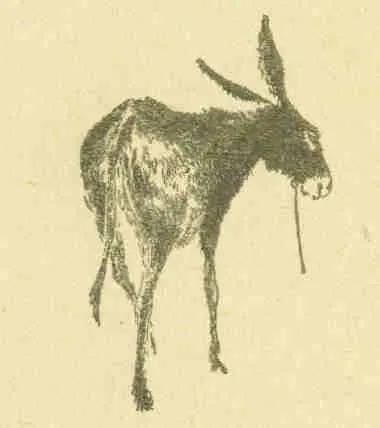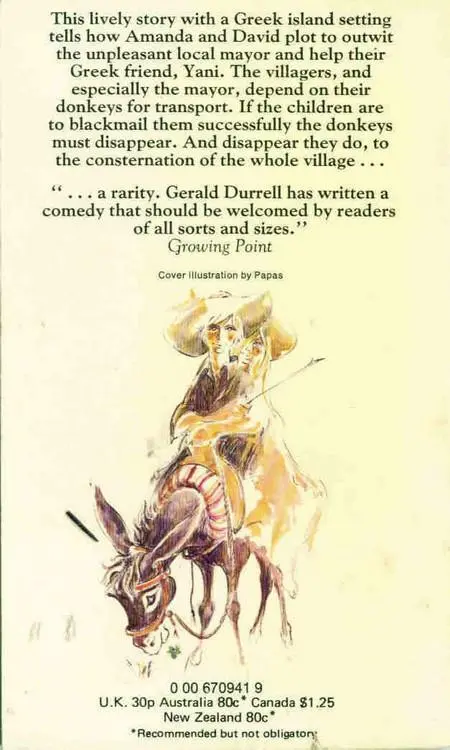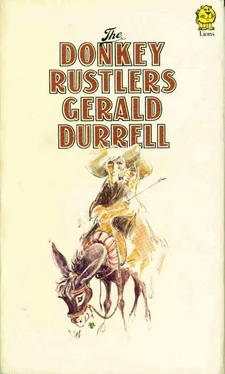She beckoned to Yani, who was in the crowd, and he came forward and joined the children by the table.
“As you know,” said Amanda, “Yani’s father died last year and unfortunately he died in debt.”
“Yes, yes,” murmured the villagers, “we know that.”
“So my brother and I,” said Amanda, “have decided to give this money to Yani so that he may repay his father’s debts.”
The cries of “Bravo,” “What generosity,” and other similar statements were overwhelming. Amanda and David solemnly handed the money over to Yani. Yani, with tears in his eyes, kissed David on both cheeks and to the delight of the villagers he kissed Amanda full on the mouth. Then he turned to the Mayor.
“Mayor Oizus,” he said, “here is the eighteen thousand drachma that my father owed you. The entire village is witness to the fact that I am now paying up his debt in full.”
He placed the sheaf of notes carefully in front of the Mayor. Again the shouts of “Bravo” were deafening, but the Mayor, instead of being pleased at having most of his money returned to him, appeared to be undergoing a strange change. His normally pale, cheese-coloured face had suddenly become suffused with blood and his eyes bulged.
“ You did it,” he shouted, suddenly getting to his feet and pointing a shaking finger at Amanda, David and Yani.
“ You did it.”
The villagers fell silent. This was a new twist to the plot which they had not anticipated.
“ They took the donkeys,” shouted the Mayor, almost apoplectic with rage. “They took the donkeys so that they could claim the reward so that they could give it to Yani Panioti and deprive me of my legal right to his land. They are the “Communists” that we have all been searching for.”
The villagers, round-eyed, looked at the children. It took a moment or so for the Mayor’s words to penetrate, but when they did, and the villagers grasped their implication, the whole gorgeousness of the situation dawned upon them. The Mayor had been treated ignominiously, had been forced to part with twenty thousand drachma, and Yani Panioti had been saved, and all by the cleverness of their English children. It was Papa Nikos who started it, for as soon as the full beauty of the situation dawned on him, he uttered a bellow of laughter that could have been heard half a mile away. Any other crowd would have been indignant at what the children had done, but these were Melissiots and they thought differently. All the villagers started to laugh and they laughed and laughed and laughed. The Mayor shouted and raved for a time, and then gave up in despair because he could not make himself heard for the great waves of laughter.
And so the three children, with something very much approaching a swagger, made their way through the village square, through the villagers, some of whom were laughing so much that they could hardly stand, and wended their way up to the villa.














